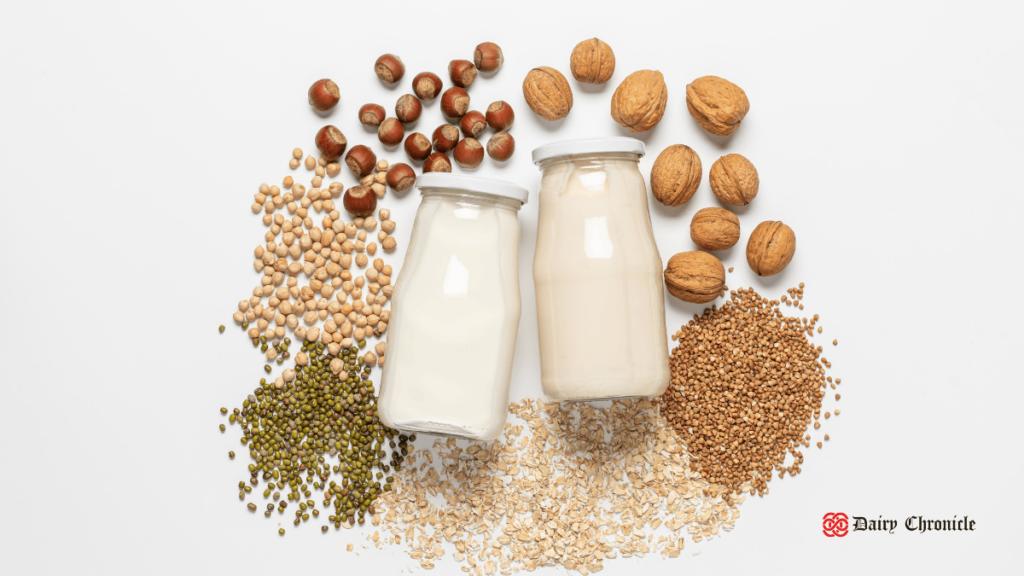On World Plant Milk Day, August 22nd, explore the benefits of switching from dairy to plant-based milk, including improved health, reduced environmental impact, and enhanced animal welfare. This change can significantly lower your environmental footprint, improve health outcomes, and prevent animal suffering. Practical tips for making the switch, addressing common misconceptions, and various plant-based milk options are also covered.
The dairy industry is known for its cruel practices, causing significant suffering to animals. However, ditching dairy doesn’t just benefit cows and calves; it also improves human health and helps protect the environment. This World Plant Milk Day, why not consider making the switch to plant-based alternatives?
Do It for Your Health
Despite the dairy industry’s efforts to convince us otherwise, consuming animal products is not essential for good health. All nutrients found in cow’s milk can be obtained from plant-based sources.
In fact, major dietetic associations worldwide agree that a well-planned vegan diet is healthy, nutritionally adequate, and suitable for all life stages, from pregnancy and infancy to childhood, adolescence, and adulthood. According to a report from the Academy of Nutrition and Dietetics, vegans have a reduced risk of certain health conditions, including heart disease, diabetes, some cancers, and obesity. Conversely, a 2022 study found that regular consumption of dairy products significantly increases the risk of developing certain types of cancer.
Do It for the Planet
Dairy farming is highly detrimental to the environment. According to the Environment Agency, most UK dairy farms fail to comply with anti-pollution regulations, leading to significant slurry spills that devastate local ecosystems. Agriculture is the largest single source of river pollution in the UK, with dairy farming accounting for 75% of all serious pollution incidents caused by agriculture.
In addition to polluting the environment, dairy production is also resource-intensive, requiring nearly twice as much water to produce one liter of cow’s milk compared to plant-based alternatives. Even the most water-intensive plant milk, almond milk, uses only 60% of the water needed for cow’s milk. Soy and oat milks are even more sustainable, using 28 and 48 liters of water per liter of milk, respectively, compared to the 628 liters required for dairy milk.
Do It for the Animals
The dairy industry is one of the most exploitative forms of animal farming. In the UK, dairy cows endure a harsh cycle of pregnancy, birth, and milking for up to five years until they are too weak to continue. When a cow is no longer profitable, she is sent to slaughter and used for low-quality meat products like pies and dog food.
Making the Switch: Where to Start?
Switching to a plant-based diet can seem daunting, especially when we have been taught all our lives that dairy is a necessary staple. Fortunately, it has never been easier to go dairy-free, with a wide variety of delicious plant-based milks now available. Here are some tips for making the transition:
- Taste Testing: Experiment with different plant-based milks to find your favorite. Many people on the Animal Aid team tried several types before settling on their preferred options.
- Be Flexible: Plant milks are versatile. For example, oat milk is excellent for baking or making hot chocolate, while soy milk is a popular choice for tea.
- Find Your Why?: Staying committed to a dairy-free diet is easier when you remember why you made the switch in the first place, whether it’s for health reasons, environmental concerns, or animal welfare.
- Get Inspired: Check out various recipe pages for ideas that don’t rely on dairy to be delicious and nutritious.
There are many dairy-free options readily available, including ice cream!
Mythbusting Common Misconceptions
- Don’t Cows Need to Be Milked? No, cows only produce milk when pregnant to feed their newborn calf. If cows were not impregnated by the dairy industry, they would not produce milk.
- Do We Need Milk for Calcium? No, while calcium is essential, it can be obtained from various plant-based foods, such as sweet potatoes, butternut squash, broccoli, watercress, kale, tofu, beans, and fortified plant milks.
- Is Goat’s Milk a Better Option? No, goat’s milk is equally exploitative. Like dairy cows, goats only produce milk when pregnant and endure similar cycles of pregnancy, birth, and milking, leading to severe health issues and exploitation.
- Are Plant Milks Bad for the Planet? Contrary to some claims, numerous studies show that plant-based diets are less resource-intensive and destructive than non-vegan diets. Switching to a vegan diet can reduce carbon emissions by 45% and land use by 55%.
World Plant Milk Day is the perfect opportunity to explore new, healthier, and more sustainable food choices. By opting for plant-based milks, you can make a positive impact on your health, the environment, and animal welfare.
